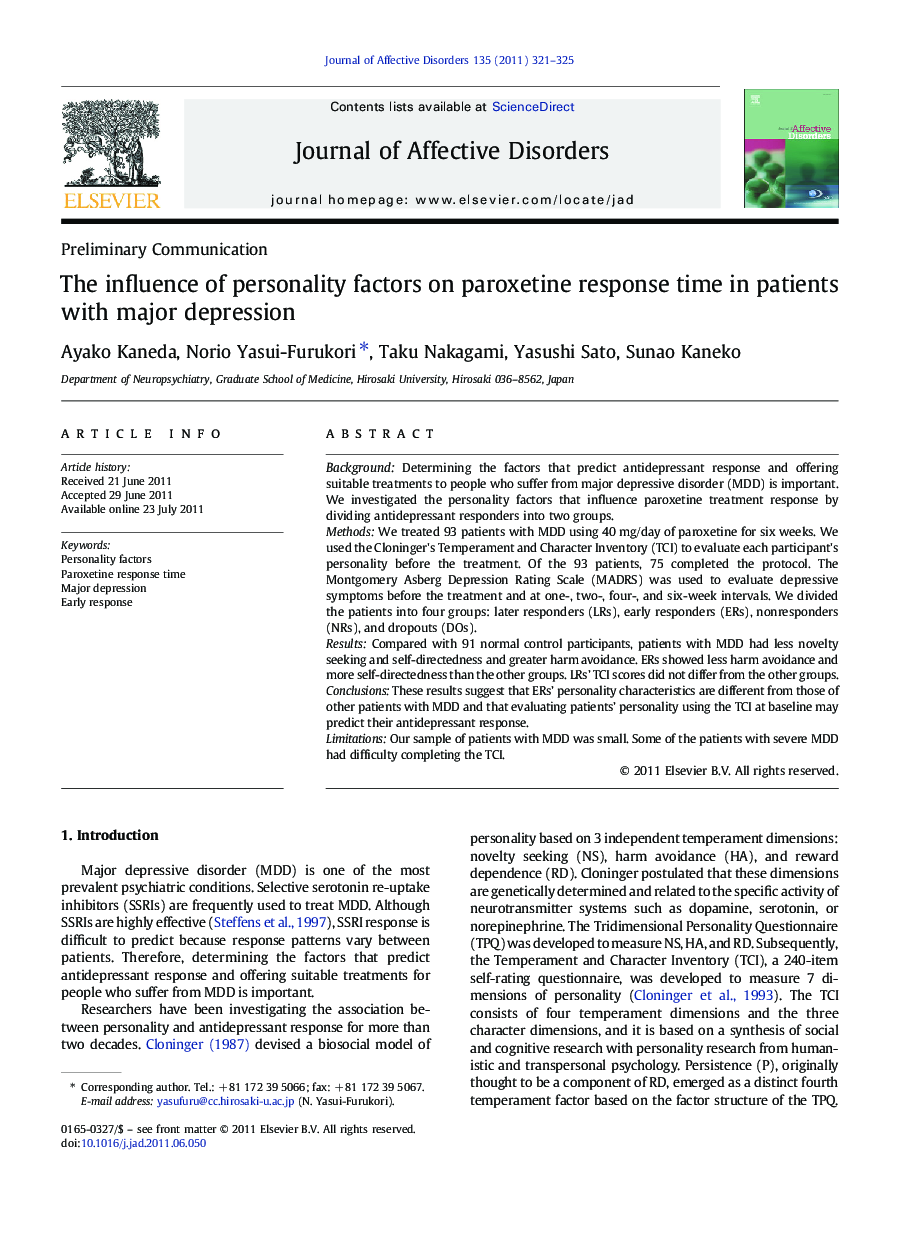| Article ID | Journal | Published Year | Pages | File Type |
|---|---|---|---|---|
| 6235655 | Journal of Affective Disorders | 2011 | 5 Pages |
BackgroundDetermining the factors that predict antidepressant response and offering suitable treatments to people who suffer from major depressive disorder (MDD) is important. We investigated the personality factors that influence paroxetine treatment response by dividing antidepressant responders into two groups.MethodsWe treated 93 patients with MDD using 40Â mg/day of paroxetine for six weeks. We used the Cloninger's Temperament and Character Inventory (TCI) to evaluate each participant's personality before the treatment. Of the 93 patients, 75 completed the protocol. The Montgomery Asberg Depression Rating Scale (MADRS) was used to evaluate depressive symptoms before the treatment and at one-, two-, four-, and six-week intervals. We divided the patients into four groups: later responders (LRs), early responders (ERs), nonresponders (NRs), and dropouts (DOs).ResultsCompared with 91 normal control participants, patients with MDD had less novelty seeking and self-directedness and greater harm avoidance. ERs showed less harm avoidance and more self-directedness than the other groups. LRs' TCI scores did not differ from the other groups.ConclusionsThese results suggest that ERs' personality characteristics are different from those of other patients with MDD and that evaluating patients' personality using the TCI at baseline may predict their antidepressant response.LimitationsOur sample of patients with MDD was small. Some of the patients with severe MDD had difficulty completing the TCI.
